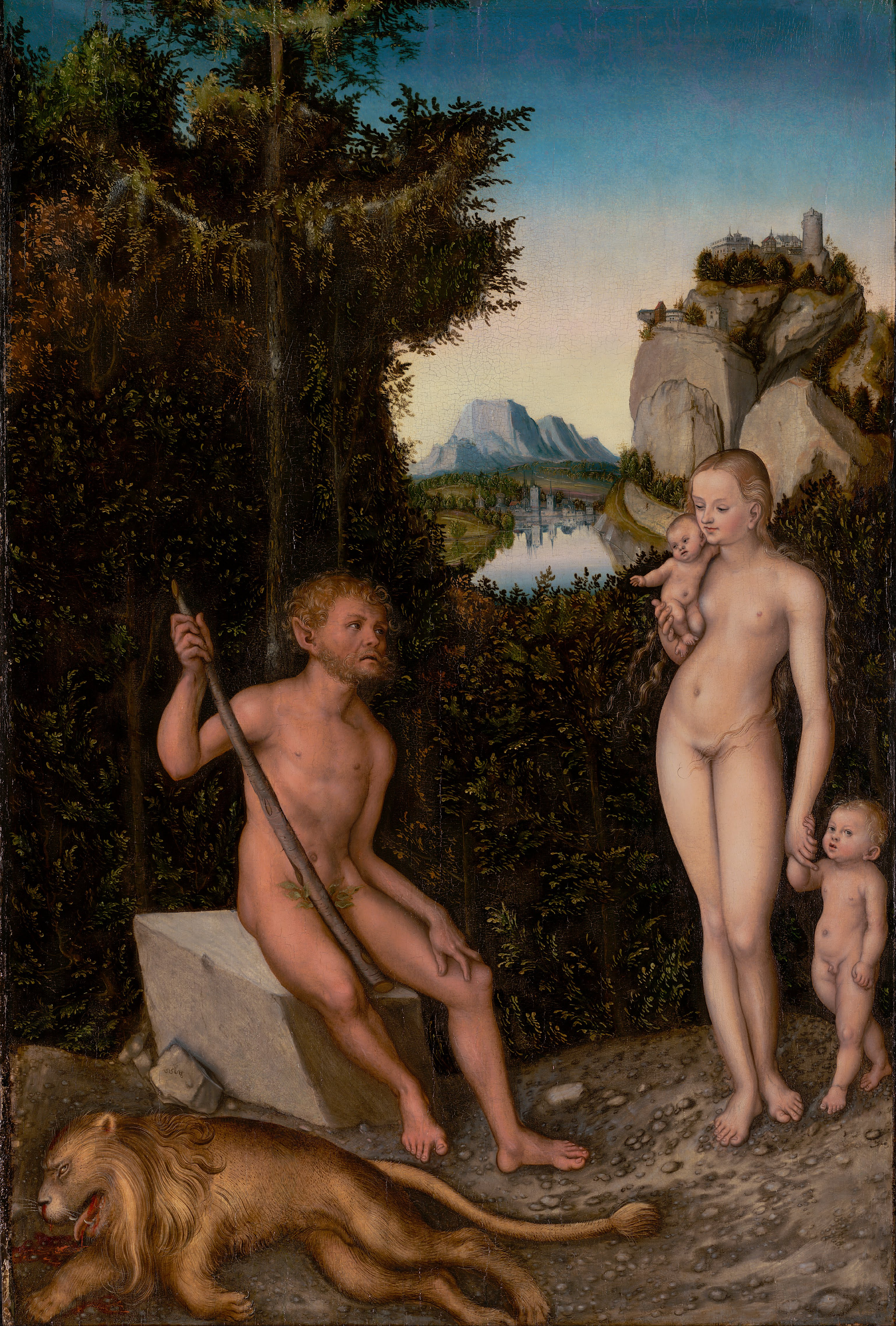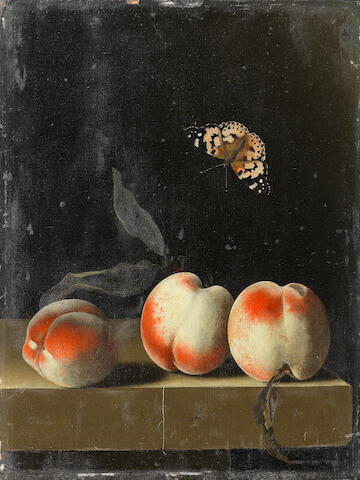Sotheby’s London 3rd December 2014 Evening sale of Old Master & British
Paintings is set to be a major highlight of the international auction calendar this winter. The sale is spearheaded
by J.M.W. Turner’s Rome, from Mount Aventine, one of the last great masterpieces of British art left in private
hands and one of the artist’s supreme achievements (est. £15-20 million). The sale is further distinguished by
another masterful Italian view, a quintessential depiction of Venice by Canaletto, as well as unique compositions
by Lucas Cranach the Elder, Pieter Brueghel the Younger and Sir Peter Paul Rubens. Estimated in excess of £32
million, the 43 lots also comprise pioneering works in the history of art, including one of the earliest examples of
Dutch flower painting and one of the first British bird’s-eye views.
Turner’s late works – the pictures he produced from the late 1820s and 1830s until his death in 1851 – are considered by many to be the artist’s supreme achievement. Exhibited at the Royal Academy in 1836, when Turner was 61 years old, Rome, from Mount Aventine is arguably the greatest and most important view of the Italian city ever painted. Rome captivated Turner for over twenty years and this subtle and atmospheric depiction of the city is a brilliant technical feat demonstrating his virtuosity as a landscape painter. In 1836, The Morning Post described the work as “one of those amazing pictures by which Mr Turner dazzles the imagination and confounds all criticism: it is beyond praise.” Based on detailed sketches Turner made during his second trip to Rome in 1828, this magnificent picture was commissioned by the major patron and the artist’s close friend and executor Hugh Andrew Johnstone Munro of Novar (1797-1864). The painting was later acquired in 1878, following Munro’s death, by the 5th Earl of Rosebery, later Prime Minister of Great Britain. It has since remained undisturbed in the Rosebery collection to this day (lot 44, est. £15-20 million / €18,980,000-25,310,000 / $24,070,000-32,090,000).
Giovanni Antonio Canal, called Canaletto, Venice, the Piazza San Marco looking east towards the Basilica, Oil on canvas, 58.5 by 92 cm.; 23 by 36. in. (est. £5,000,000-7,000,000)
Joseph Mallord William Turner R.A. (1775-1851), Rome, from Mount Aventine, 1835 (est. £15-20 million)
Oil on its original canvas and in its original frame, 36 by 49 in.; 91.6 by 124.6 cm
Turner’s late works – the pictures he produced from the late 1820s and 1830s until his death in 1851 – are considered by many to be the artist’s supreme achievement. Exhibited at the Royal Academy in 1836, when Turner was 61 years old, Rome, from Mount Aventine is arguably the greatest and most important view of the Italian city ever painted. Rome captivated Turner for over twenty years and this subtle and atmospheric depiction of the city is a brilliant technical feat demonstrating his virtuosity as a landscape painter. In 1836, The Morning Post described the work as “one of those amazing pictures by which Mr Turner dazzles the imagination and confounds all criticism: it is beyond praise.” Based on detailed sketches Turner made during his second trip to Rome in 1828, this magnificent picture was commissioned by the major patron and the artist’s close friend and executor Hugh Andrew Johnstone Munro of Novar (1797-1864). The painting was later acquired in 1878, following Munro’s death, by the 5th Earl of Rosebery, later Prime Minister of Great Britain. It has since remained undisturbed in the Rosebery collection to this day (lot 44, est. £15-20 million / €18,980,000-25,310,000 / $24,070,000-32,090,000).
Giovanni Antonio Canal, called Canaletto, Venice, the Piazza San Marco looking east towards the Basilica, Oil on canvas, 58.5 by 92 cm.; 23 by 36. in. (est. £5,000,000-7,000,000)
The other masterful Italian view in the sale is an exceptional Veduta by Canaletto, now to be shown in public for the first time since the ground-breaking Manchester Art Treasures exhibition back in 1857. From the beginning of the 1730s, the decade that would establish Canaletto as Venice’s greatest and most famous view painter, this picture depicts The Piazza San Marco on a typically sunny day. The number of variants of this scene painted by the artist throughout his career is evidence of the popularity that it enjoyed with 18th-century visitors to Venice. Other important variants are found in the Museo Thyssen in Madrid and the Metropolitan Museum of Art in New York. The present work enjoys a particularly distinguished English provenance and will be offered with an estimate of £5-7 million (lot 11, est. €6,340,000-8,880,000 / $8,050,000- 11,270,000).
A Seminal Work by Cranach
The sale will also present The Faun Family, a major work by Lucas Cranach the Elder (1472-1553). Not seen on the market for some 60 years, this composition, unique to the artist’s oeuvre, was painted in 1531, at the height of his career. It was commissioned no doubt by a member of the courtly circle in Wittenberg, where Cranach was in the employ of the Electors of Saxony. This outstanding work is remarkable for the precision with which every detail is rendered. It is part of a series of mythological depictions of wild people, forest dwellers or demigods. The subject had long fascinated the artist and culminated in a series of panel paintings from the second half of the 1520s onwards (lot 13, est. £1.2-1.8 million / €1,53-2.29 million / $1.94-2.9 million).
At the heart of this winter’s auction will also be two important Dutch still-
lifes. Adriaen Coorte’s Three peaches on a stone ledge, with a Red
Admiral butterfly is one of the very finest works by an artist little known
during his own lifetime, virtually forgotten in the 18th and 19th centuries but
who, more latterly, has become one of the most sought after of all Dutch
still life painters of the 17th century. Coorte’s highly distinctive pictures are
instantly recognisable for their simplicity of treatment and restricted range
of subject matter. Discovered in 2011, this tiny picture (31.3 by 23.3 cm.;
12. by 9. in.) from around 1693-1695/6 is without question one of the most
beautiful recent additions to his known oeuvre and certainly one that
confirms his still lifes to have struck a vital chord with the modern mind (lot
37, est. £2-3 million/ €2,540,000-3,810,000/ $3,220,000-4,830,000).
(This painting was sold at Bonhams Decemember 7, 2011: Sold for £2,057,250 (US$ 3,229,052) inc. premium.)
(This painting was sold at Bonhams Decemember 7, 2011: Sold for £2,057,250 (US$ 3,229,052) inc. premium.)
Another important Dutch still life is found in the earliest extant flower
painting by Ambrosius Bosschaert the Elder (1573-1621). Painted
around 1605, Still life of flowers, including irises, narcissi, lily-of-the-
valley and carnations, in a tall glass vase set on a stone ledge is
amongst the very earliest examples of independent flower painting in
the Netherlands. From 1606 onwards there was a sudden and
considerable output in the genre by Bosschaert himself but also Jan
Brueghel the Elder, Roelandt Savery and their increasing numbers of
followers. However, the sophistication of the present work would
suggest that Bosscheart may have had an earlier career in the genre of
flower painting before 1605 (lot 35, est. £600,000-900,000 / €760,000-
1,140,000 / $965,000-1,450,000).
Flemish Painting: Two Unique Compositions by Rubens & Brueghel
The sale comprises a fine group of Flemish paintings led by an expressive modello by Sir Peter Paul Rubens (1577-1640), The Martyrdom of Saint Paul. Dating from circa 1637, the work is the only known, complete study for the artist’s large altarpiece painted for the High Altar of the Church of the Augustinian Priory of Rood Klooster (also Rooklooster) near Brussels, of which St. Paul was the patron saint. The altarpiece was destroyed during the French bombardment of Brussels in 1695, leaving the present sketch as the primary surviving visual record of this composition (lot 32, est. £600,000- 800,000 / €765,000-1,020,000 / $970,000-1,290,000, pictured left).
Pieter Brueghel the Younger (1564-1637/8) features with two pictures, including a late work, A Village Street with peasants dancing. This is a rare example of a unique composition in Brueghel’s oeuvre, and is entirely of his own devising. When sold from the Belper collection in 1973, it fetched the then huge sum of £157,500, and set an auction record for a work by Brueghel. Five years later, in 1978, it broke its own record when it was sold for £260,000. This winter, it will be offered for sale with an estimate of £700,000 to £1 million (lot 3, est. €890,000-1,270,000 / $1,130,000- 1,610,000).
Flemish Painting: Two Unique Compositions by Rubens & Brueghel
The sale comprises a fine group of Flemish paintings led by an expressive modello by Sir Peter Paul Rubens (1577-1640), The Martyrdom of Saint Paul. Dating from circa 1637, the work is the only known, complete study for the artist’s large altarpiece painted for the High Altar of the Church of the Augustinian Priory of Rood Klooster (also Rooklooster) near Brussels, of which St. Paul was the patron saint. The altarpiece was destroyed during the French bombardment of Brussels in 1695, leaving the present sketch as the primary surviving visual record of this composition (lot 32, est. £600,000- 800,000 / €765,000-1,020,000 / $970,000-1,290,000, pictured left).
Pieter Brueghel the Younger (1564-1637/8) features with two pictures, including a late work, A Village Street with peasants dancing. This is a rare example of a unique composition in Brueghel’s oeuvre, and is entirely of his own devising. When sold from the Belper collection in 1973, it fetched the then huge sum of £157,500, and set an auction record for a work by Brueghel. Five years later, in 1978, it broke its own record when it was sold for £260,000. This winter, it will be offered for sale with an estimate of £700,000 to £1 million (lot 3, est. €890,000-1,270,000 / $1,130,000- 1,610,000).
The sale will also present one of the first British bird’s eye views ever painted. Painted circa 1665 by an
anonymous English artist, this large scale View of Llanerch Park, Denbighshire is not only a very beautiful work
of art but also an extremely important historical document. The picture’s very early date makes it the first in a
great tradition of bird’s eye views of British country houses. Testament to the birth of landscape painting in the
country, the work also gives a very rare and astonishingly detailed glimpse of Llanerch’s garden, a lost jewel in
the Welsh cultural crown. The painting has remained in the same family since the creator of the garden, Mutton
Davis commissioned it in 1665. It will be offered at auction for the first time, with an estimate of £400,000-
600,000 (separate release available for further details).
Further to the record set for a work by Artemisia Gentileschi (1593-1654) in Paris in June1, the Italian Baroque artist who was the first woman to become a member of the Accademia di Arte del Disegno in Florence features in the sale with an impressive full-scale depiction of Bathsheba at her bath. Painted probably in the 1640s, at the height of Gentileschi’s maturity, the work is offered at auction for the first time in its history with an estimate of £200,000-300,000 (lot 20, est. €254,000-380,000 / $321,000-482,000).
Further to the record set for a work by Artemisia Gentileschi (1593-1654) in Paris in June1, the Italian Baroque artist who was the first woman to become a member of the Accademia di Arte del Disegno in Florence features in the sale with an impressive full-scale depiction of Bathsheba at her bath. Painted probably in the 1640s, at the height of Gentileschi’s maturity, the work is offered at auction for the first time in its history with an estimate of £200,000-300,000 (lot 20, est. €254,000-380,000 / $321,000-482,000).







